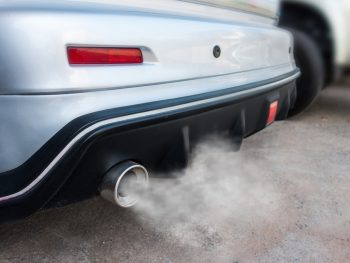UK Prime Minister confirms delay to 2030 ICE ban
Prime Minister Rishi Sunak has confirmed the Government will push the 2030 combustion engine ban back five years in a move to “ease the transition to electric” on families.
Sunak said the UK would still get to net zero by the 2050 target but would do so by a “fairer, better approach”.
This includes pushing back the 2030 ban on the sale of pure petrol and diesel new cars and vans, announced three years ago when Boris Johnson was PM but Sunak was Chancellor, to 2035, which he said aligns with bans in other major markets.
Sunak said: “I’m proud that we’ve already attracted billions of new investments from companies like Tata as Jaguar Land Rover, giga factory, and I expect that by 2030, the vast majority of cars sold will be electric. Why? Because the costs are reducing. The range is improving the charging infrastructure is growing. People are already choosing electric vehicles to such an extent that we’re registering a new one every 60 seconds.
“But I also think that at least for now, it should be the consumer that makes that choice, not forcing you to do it. Because the upfront cost still is high, especially for families. The cost of living. Small businesses are worried about the practicalities. And we’ve got further to go to get the charging infrastructure truly nationwide.”
Sunak also said there would be “far more time” for the transition from gas boilers to heat pumps and , as he talked of a “pragmatic, proportionate and realistic approach that eases the burdens on families”.
However, he said the UK would not abandon climate change targets and commitments.
“I’m unequivocal that we will meet our international agreements, including the critical promises in Paris and Glasgow to limit global warming to 1.5 degrees.”
And he denied that he was “watering down” key pledges on climate change, despite claims of selling out for political gain.
Full details of the now-2035 ICE ban weren’t announced in his speech. Under the previous plans, conventional petrol and diesel cars and vans would have been banned by 2030, leaving hybrids with “significant zero-emission capability” on sale until 2035 at which point only fully electric cars and vans would have been allowed anyway. Shifting the ban to 2035 but without a hybrid phase-out would have the same EV-only deadline but allow pure combustion engines to hang around for another five years. Details for the zero emission vehicle mandate, due to start in 2024, just months away, were also lacking.
‘A historic and monumental mistake’
The delay to the ICE ban will go down well with climate-sceptic Tory backbenchers who had been looking to water down climate commitments ahead of next year, along with carmakers not happy with the commitment. But there is opposition elsewhere among the Conservative Party.
It’s also met with condemnation from a group of environment NGOs including Transport & Environment, Campaign for Better Transport and Greenpeace UK, who said it was “a historic and monumental mistake”.
That includes for climate change. The group warned: “The 2030 ban on the sale of new petrol and diesel vehicles, and the accompanying zero emissions vehicle mandate, is the biggest carbon cutting measure in the Government’s Net Zero Strategy. The delay to 2035 would blow a massive hole in any serious attempt to reach net zero emissions by 2050 and thanks to the legally binding nature of the target, emissions savings will need to be found elsewhere.”
They also warned of shockwaves across the industries that are delivering critical investments, raw materials and infrastructure for the rollout of electric vehicles.
Meanwhile the Association of Fleet Professionals said the reaction across the fleet sector was largely negative – despite today’s announcement removing the pressure to electrify away for the time being.
Paul Hollick, chair, AFP, continued: “The motor industry and their fleet customers have invested billions towards meeting the 2030 electrification deadline and while there are serious operational issues that need to be tackled, especially when it comes to electric vans, the assumption within our membership was that the Government would need to provide more support, not move the goalposts.”
He added that the rowback would likely do little to change carmakers’ future production plans away from electric vehicles towards petrol and diesel – but said the overwhelming feeling for fleets themselves was “probably one of irritation”.
“Fleets have done some incredible work when it comes to electrification and it feels as though the can has been kicked down the road in a fairly arbitrary fashion by a government that sees this move as politically expedient.”
Hollick also spotlighted a range of adverse effects that the Government had likely not thought of.
“The value of existing EVs may be negatively affected; investment in charging infrastructure may fall away; and there may just be something of a ‘manyana’ environment around electrification for the next few years. However, this must be resisted and it is especially important the local authorities are properly funded to ensure the installation of on-street chargers becomes widespread.”


